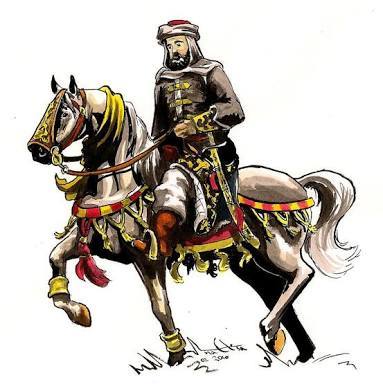
Prologue to Canterbury Tales : Textual study of chivalric class
The Knight rides at the front of the procession described in the General Prologue, and his story is the first in the sequence. The Host clearly admires the Knight, as does the narrator. The narrator seems to remember four main qualities of the Knight. The first is the Knight’s love of ideals—“chivalrie” (prowess), “trouthe” (fidelity), “honour” (reputation), “fredom” (generosity), and “curteisie” (refinement) (General Prologue, 45–46). The second is the Knight’s impressive military career. The Knight has fought in the Crusades, wars in which Europeans traveled by sea to non-Christian lands and attempted to convert whole cultures by the force of their swords. By Chaucer’s time, the spirit for conducting these wars was dying out, and they were no longer undertaken as frequently. The Knight has battled the Muslims in Egypt, Spain, and Turkey, and the Russian Orthodox in Lithuania and Russia. He has also fought in formal duels. The third quality the narrator remembers about the Knight is his meek, gentle, manner. And the fourth is his “array,” or dress. The Knight wears a tunic made of coarse cloth, and his coat of mail is rust-stained, because he has recently returned from an expedition.
The Knight’s interaction with other characters tells us a few additional facts about him. In the Prologue to the Nun’s Priest’s Tale, he calls out to hear something more lighthearted, saying that it deeply upsets him to hear stories about tragic falls. He would rather hear about “joye and greet solas,” about men who start off in poverty climbing in fortune and attaining wealth (Nun’s Priest’s Prologue, 2774). The Host agrees with him, which is not surprising, since the Host has mentioned that whoever tells the tale of “best sentence and moost solaas” will win the storytelling contest (General Prologue, 798). And, at the end of the Pardoner’s Tale, the Knight breaks in to stop the squabbling between the Host and the Pardoner, ordering them to kiss and make up. Ironically, though a soldier, the romantic, idealistic Knight clearly has an aversion to conflict or unhappiness of any sort.
The Squire - The Knight’s son and apprentice. The Squire is curly-haired, youthfully handsome, and loves dancing and courting.-


